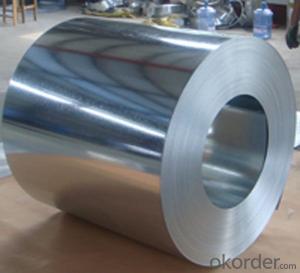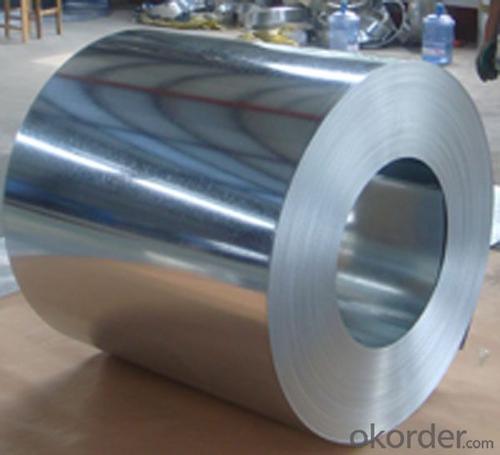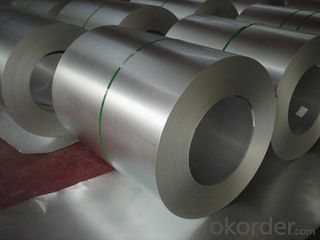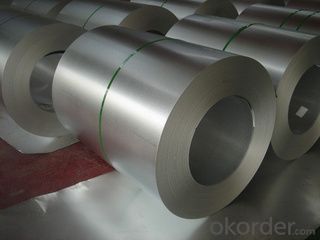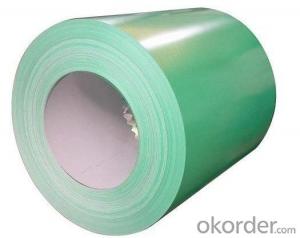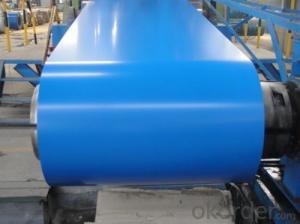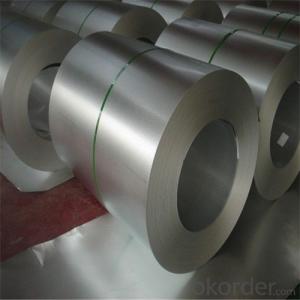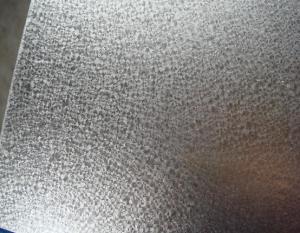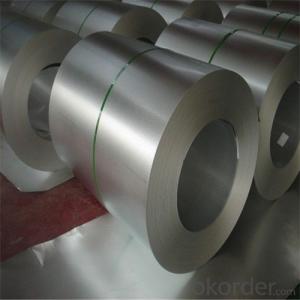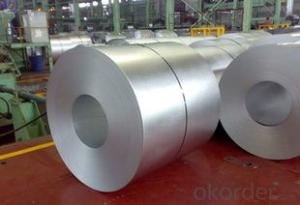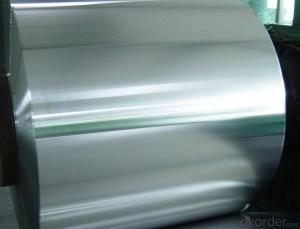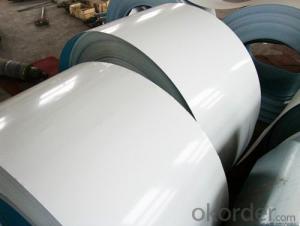Hot-dip Aluzinc Steel of High Quality and of Early Shipment Date
- Loading Port:
- China main port
- Payment Terms:
- TT OR LC
- Min Order Qty:
- 30 m.t.
- Supply Capability:
- 30000 m.t./month
OKorder Service Pledge
OKorder Financial Service
You Might Also Like
1. Description of the Hot-dip Aluzinc Steel:
Hot-dip aluzinc steel structure is composed of aluminum-zinc alloy, consisting of 55% aluminum, 43% zinc and 2% at 600 ℃ silicon solidification temperature and composition, the entire structure is made of aluminum - iron - silicon - zinc, to form a dense quaternary crystals an alloy.
Hot-dip aluzinc steel has many excellent features: strong corrosion resistance, is three times the pure galvanized sheet; zinc surface with beautiful flowers, can be used as a building outside board.
Applications of hot-dip aluzinc steel:
1)Building: roof, walls, garages, soundproof walls, pipes and modular housing.
2)Automotive: muffler, exhaust pipes, wiper accessories, fuel tank, truck boxes, etc.
3)Appliances: refrigerator back, gas stove, air conditioners, microwave oven, LCD frame, 4)CRT-proof band, LED backlight, electrical cabinets, etc.
5)Farm: barn, sheds, silos, piping and other greenhouse.
6)Other: breaking heat insulation cover, heat exchangers, dryers, warm water, etc.
2.Main Features of the Hot-dip Aluzinc Steel:
• Excellent corrosion resistance
• High temperature oxidation resistance
• High hot reflectance
• Good manufacturability
•Beautiful appearance
•Surface coating
•Cost-effective
3.Hot-dip Aluzinc Steel Images
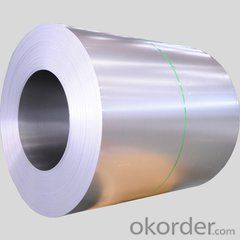
4.Hot-dip Aluzinc Steel Specification
Available Specification
HOT-DIP ALUZINC STEEL COILS | |
THICKNESS | 0.16mm-3.5mm |
WIDTH | 1250mm MAX |
COATING MASS | 30g/ m2-185 g/ m2 |
SPANGLE | Regular Spangle, Minimized Spangle, Zero Spangle |
SURFACE TREATMENT | Chromated / non-chromated, Oiled / non-oiled, Anti Finger Print |
COIL INNER DIAMETER | 508mm or 610mm |
5.FAQ of Hot-dip Aluzinc Steel
We have organized several common questions for our clients,may help you sincerely:
1.What advantages does your company have?
Cement : Annual capacity of 400 million tons, No. 1 in the world
Fiberglass: Annual capacity of 1 million tons fiberglass, No. 1 in the world.
Composite Materials — Carbon Fiber: Annual capacity of 10,000 tons PAN precursor and 4,000 tons carbon fiber, No. 1 in China
Composite Materials — Rotor Blade: Annual production capacity of 15,000 pieces, No.1 in China, Top3 worldwide
Glass: CNBM owns about 20 modern float glass product`ion lines, With annual capacity of 10 million square meters glass.
Light Weight Building Materials: Annual capacity of 1.65 billion square meters of gypsum board, No. 1 in the world.
Commercial concrete: Annual capacity of 0.35 billion cubic meters, No. 1 in the world.
Refractory Material: Annual capacity of 40,000 tons casting refractory, No.1 in the world.
2.What advantages do your products have?
Firstly, our base material is of high quality, Their performance is in smooth and flat surface,no edge wave ,good flexibility.
Secondly, high quality zinc ingoats, 97.5% zinc,1.5% silicon,1% others, the same zinc coating measured by metal coating thickness or by zinc weight
Thirdly, high precision: Tolerance strictly according to ASTM or JISG standard even more rigid.
We have full stes of testing equipment(for t best, cupule,chromatism,salt spray resistance, etc) and professional engineers.
3.how long we will receive the goods ?
After receiving your deposit or workable lc ,our normal shipment date is 15-20days,and it takes around 28 days to reach your port of destination. But is up to different destination
3.Could you let me approach about your company in Dubai?
Located at Jebel Ali Free Zone in Dubai, CNBM Dubai Logistics Complex is adjacent to -Jebel Ali sea port-the largest port in UAE and Al Maktoum Airport-the largest airport in the world, which covers an area of 50,000 square meters, including an fully enclosed warehouse by 10,000 square meters, an open yard by 25000 square meters, and 13 standard unloading platform. CNBM Dubai Logistics Complex formally put into operation on August 1, 2013. Dubai Logistics Complex will commit itself to build the most professional and most influential building materials distribution center of China’s building materials industry in the UAE and throughout the Middle East and Africa.
- Q: How are steel coils used in the manufacturing of storage shelves?
- Steel coils are used in the manufacturing of storage shelves by being cut and shaped into the desired size and design. The coils are typically processed through a roll forming machine which bends and molds the steel into the required shape for the shelves. This process allows for high efficiency and precision in creating uniform and durable storage shelves.
- Q: What is the maximum width of galvanized steel strip, please? The galvanized coat is 275, and how long is one coil?
- The length of the roll is related to its width and thickness, but not to the extent of the zinc layer.
- Q: I haven't seen Man of Steel yet, but which one do you think was better? (please no spoilers)
- Well, I haven't seen it Man of Steel but I really see it hard to believe that's better than Superman. To me, Superman with Christopher Reeve is the best movie about Superman ever made. When I first saw it I was amazed. Watching Superman flying for the first time, catching Loise and graving that helicopter before it falls... it was awesome! I loved it! The other movies that followed were bad but this one was amazing. I've seen what other actors have made with the character, but I believe Christopher was the best. He was the perfect man, the perfect gentleman and the best superhero ever. I know that this Superman is for the new generations so it will be more 'real' and more 'suffered' or will have more personal issues dealing with his origins and blah blah blah... and I wish him good luck, but honestly? I stick to the original Superman because whenever I see Christopher Reeve flying around the planet as Superman (hanging from wires-no CGI people!) and I hear that characteristic music I just melt and I'm a child once more. So good luck to the new generation, I really hope they like this new guy and new story, but I'm more than fine with the original version, thank you. Hope it helps! ;)
- Q: Edward Humphrey wants to know... Can I use steel roofing on an older house?
- In the town that I live it is getting really popular.The good thing is the old roof doesn't need torn off you just put 2in boards the width or the steel on the old roof and then screw the steel roof panels to it.
- Q: this is for a school project due morrow can u please answerwhat are disadvantages of stainless steelplease also show were u got info ty
- Disadvantages of Stainless Steel: 1. High initial cost 2. Difficult to fabricate, or in other words, it is not as malleable as other metals, say iron, and hence if not fabricated properly, results in costly re-work. 3. Difficult to weld 4. High cost of polishing etc. i.e. adding finishing touches for the market. Also, for the record: Stainless steel does NOT rust. One of the advantages of it over other metals (steel and iron) are that it is rust-free. But of course, depending on the environment condition (E.g. long periods in a rainforest without use at all) it can rust....this is a very rare (and unfortunate) situation. ;)
- Q: What are the common coil diameter and weight combinations available for steel coils?
- The common coil diameter and weight combinations available for steel coils vary depending on the specific requirements of the industry or application. However, some commonly available coil diameter ranges include 24 inches to 72 inches, while weight combinations can range from 3,000 pounds to 50,000 pounds or more. These dimensions can be further customized based on the needs of the customer and the capabilities of the steel manufacturer.
- Q: i would like to make a dmascus steel knife, i have the cable but im not sure if its damascus steel or not, how do i tell? and if it isnt damascus steel how do i make a bar of it?
- Here's what you need, the cable should be a minimum of 9/16 with large wires. You need some borax (20 mule team from the store). A good hot coal, coke, or gas forge. If the cable has fiber rope in the center it will need to be removed. Fuse the ends of the cable to keep them from coming apart. I use my welder and while I'm at it I weld a handle to make it easier. Heat it in the forge when the forge is properly heated, rotate it. Some people will burn the oil out, but I've found that the forge does that just fine. Rotate the cable while it's heating. When it begins the turn red pull it out and sprinkle the borax over it, don't hold back use a lot. It will begin to melt and bubble into the steel. Put the cable back in the forge, rotate and watch. This is the critical part. When the steel starts to turn from orange/yellow to almost yellow/white take it out and lightly (I use a 2lb hammer) begin hammering the cable into a square or rectangle. If you do it right you'll notice that it will begin to fight the hammer, that's when you know the weld it taking place. You'll have to repeat the process down the length of the cable. Once you have the billet made you can begin the process of shaping the edge and tang. Once you have it shaped, follow proper forge procedure then grind all the yuck off and finish shaping. Then harden and temper and finish it out. Good luck. I almost forgot a very important part. Befor you start hammering put the cable in a vice while at welding temp (if you are strong you can use a couple of plyers) and twist it tight. On the next heat hold the cable in your left and and lay it on the anvil. Concentrate on your light hammer blows being on your side of the cable. This forces the cable strands together. If you are using smaller cable like 9/16 you can double the cable up and weld two peices together, it is easier and makes for a prettier blade. Doing this you don't have to worry about twisting the cable and you can hit it much harder to start with.
- Q: I have the game of the year edition for fallout 3 but there's no mission or quest saying it's called broken steel so what is it actually called and where is it? Please describe the quest in case I mightve already done it without even knowing.
- If I can remember right (SPOILER) you have to beat the game and instead of dying you just pass out and wake up with the brother hood of steel.
- Q: iam talking abt carbon steel of composition:-C=0.15wt% Mn=0.60wt% P=0.035wt% S=0.04wt% Cu=0.20 (min)wt%....
- The composition of the steel is almost tertiary to many other considerations, except that there are certain elements and percentages of elements which tend to affect the crystaline structure in the steel. The most basic question is whether the crystaline arrangement of atoms in the steel is martensitic or austenitic, and many factors influence that. In general, martensitic structure is magnetic and austenitic structure doesn't respond much to magnetic fields, but there are varying degrees of martensitic and austenitic -- there is never a pure state. Read the articles at bottom.
- Q: So...I'm learning about how steel is made and I'm wondering if there is a more environmentally friendy method. I view it as unfriendly b/c of the oxygen that is injected when the steel is in the blast furnace or electric arc furnace. This oxygen bonds w/ the carbon to produce CO and CO2. THis is necessary to reduce the amount of carbon content to produce harder steels. So what other methods are there that can be used w/o having to end up w/ co and co2? thanks
- From what I understand of it, US steel is better as the steel is more recycled than Canadian, so a lot of that oxygen / CO2 has already taken place compared to working from ore. The second reason US steel is environmentally ahead of Canadian is that US tends to use Electric Arc, while Canadian uses Basic Oxygen, Basic Oxygen uses more energy than electric arc, and I think it also uses more oxygen, but I would suspect that oxygen that it uses is 'waste oxygen' and not converted into Co2 because the Co2 process is limited by the carbon, and steel only has so much carbon.
Send your message to us
Hot-dip Aluzinc Steel of High Quality and of Early Shipment Date
- Loading Port:
- China main port
- Payment Terms:
- TT OR LC
- Min Order Qty:
- 30 m.t.
- Supply Capability:
- 30000 m.t./month
OKorder Service Pledge
OKorder Financial Service
Similar products
Hot products
Hot Searches
Related keywords
